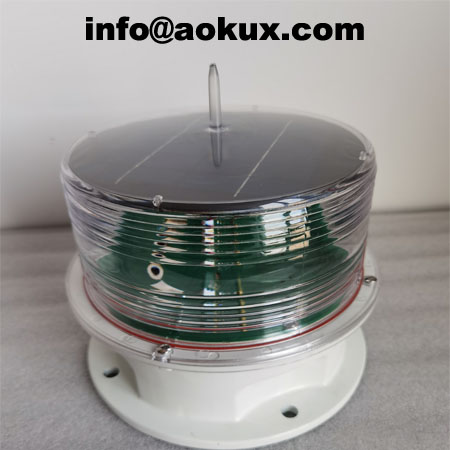
Solar Marine Lanterns: Harnessing the Sun's Power for Safe Navigation at Sea
Introduction:
In the vast expanse of the world's oceans, safety and navigation are of paramount importance. One significant advancement in maritime safety technology is the use of solar marine lanterns. These specialized lights, equipped with solar panels, have revolutionized the way navigational aids are powered and have greatly enhanced visibility for ships and vessels, especially in remote and off-grid locations. In this article, we will explore the significance of solar marine lanterns and their impact on maritime safety.
What are Solar Marine Lanterns?
Solar marine lanterns are navigational aids specifically designed for maritime use. They rely on solar energy to power their internal battery, which in turn illuminates the lantern. These lanterns are typically installed on buoys, lighthouses, offshore platforms, and other marine structures to provide clear and visible signals to ships and vessels, aiding in safe navigation.

Key Features of Solar Marine Lanterns:
Solar Power: Solar marine lanterns harness the sun's energy through built-in solar panels. This renewable energy source eliminates the need for traditional power sources such as batteries or grid connections, making them environmentally friendly and cost-effective.
Energy Efficiency: Solar marine lanterns utilize energy-efficient LED lights, which require less power to operate compared to traditional incandescent lights. This efficiency ensures longer battery life and reduces maintenance requirements.
Self-Sustainability: Solar marine lanterns are independent power systems, capable of operating autonomously. They charge during the day and can illuminate throughout the night, even in remote or off-grid locations where power infrastructure is limited or nonexistent.
Durability: Solar marine lanterns are designed to withstand harsh marine environments, including exposure to saltwater, UV radiation, and extreme temperatures. They are constructed using corrosion-resistant materials, ensuring their longevity and reliable performance in challenging conditions.
Remote Monitoring and Control: Many solar marine lanterns are equipped with advanced monitoring and control systems. This allows operators to remotely monitor the lanterns' performance, including battery charge levels, light intensity, and potential malfunctions. Remote control capabilities also enable operators to adjust the lantern's settings and flash patterns as needed.
Advantages of Solar Marine Lanterns:
Enhanced Safety: Solar marine lanterns significantly improve maritime safety by providing clear and visible signals to ships and vessels, enabling them to navigate safely, especially during periods of reduced visibility.
Cost Savings: Solar marine lanterns eliminate the need for expensive battery replacements or grid connections. Once installed, they operate with minimal maintenance and zero energy costs, ensuring long-term cost savings for marine infrastructure operators.
Environmental Sustainability: Solar marine lanterns contribute to environmental sustainability by harnessing clean and renewable solar energy. They reduce reliance on non-renewable energy sources, minimize carbon emissions, and help preserve the marine ecosystem.
Ease of Installation: Solar marine lanterns are relatively easy to install compared to traditional wired lighting systems. They do not require extensive wiring or trenching, making them ideal for remote or hard-to-reach locations.
|
Solar Marine Lantern |
Marine Lanterns |